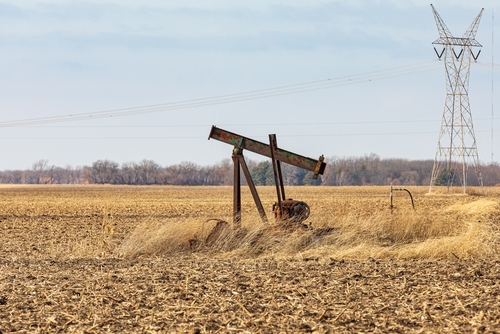
Bipartisan legislation that would remove barriers to closing abandoned oil wells was introduced in the U.S. House of Representatives on Tuesday by U.S. Reps. Glenn Thompson (R-PA) and Chris Deluzio (D-PA).
If enacted, the Orphan Well Grant Flexibility Act, H.R. 1217, would remove burdens on state agencies when it comes to certain testing procedures. That will maximize the use of federal funds, the congressmen said, and lead to more wells being plugged.
“Pennsylvania is the birthplace of the petroleum industry, which helped establish the United States and the Commonwealth as global energy leaders,” Thompson said. “Now, it’s essential to ensure these legacy sites are safely and properly restored. The Orphan Well Grant Flexibility Act will cut red tape, speed up environmental restoration, and protect communities throughout oil and gas-producing regions.”
The legislation aims to empower states to maximize their operational flexibility when plugging abandoned oil wells. Left unplugged or improperly plugged, orphan wells create concerns over water contamination, methane emission and pollutants.
There are 27,230 abandoned and orphaned oil and gas wells across the state of Pennsylvania, the Pennsylvania Department of Environmental Protection said.
“The Orphan Well Grant Flexibility Act is a common-sense, bipartisan way to streamline the cleanup of abandoned oil and gas wells that endanger our communities and threaten our air and water. We should be putting federal dollars to work to plug abandoned oil and gas wells faster,” Deluzio said.
“Western Pennsylvania has one of the highest concentrations of abandoned wells in the country—including at least 25 in Beaver County and 219 in Allegheny County,” Deluzio noted. “The 2021 Bipartisan Infrastructure Law directed $4.7 billion to plug these wells across the country. This bill will help us pick up the pace in addressing this threat to public safety, our health, and peoples’ livelihoods.”
The legislation is supported by the Interstate Oil and Gas Compact Commission, Citizens for Responsible Energy Solutions, Heritage Foundation Action, ConservAmerica, The Nature Conservancy, Independent Petroleum Association of America, and the Wildlife Management Institute.